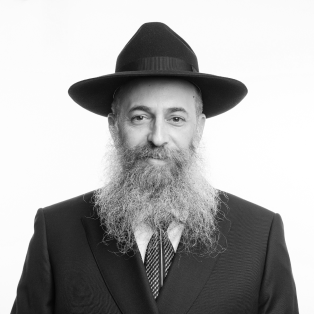A bitter pill to swallow – navigating the medicine on Pesach conundrum
Despite the increased Kashrut complications presented by the strict laws of Pesach, Pesach remains a highly observed festival amongst the South African Jewish community. This unique character of our community reminds me of a statement made in the Gemora[1] with regard to the status of a house rented from a Jew on Erev Pesach. The question is whether one may assume that the owner searched the preceding night, as is his obligation. To which the Gemora responds, הכל חברים הם אצל בדיקת חמץ, hakkol chaveirim hem eitzel bedikat chametz, which loosely means that everyone has the status of someone punctilious in Torah observance when it comes to searching for Chametz (even if they may not enjoy this status in other areas of Jewish law). Accordingly, one may assume that the house was duly searched the night before. In South Africa we are blessed that a large portion of the community remain steadfast in their observance of the laws of Pesach.
We are all acutely aware of the prohibition against eating Chametz on Pesach. Yet the prohibition is not limited to bread and the like. Indeed, any ingredient which contains Chametz renders the overall product prohibited for consumption over Pesach (at least Rabbinically, if not Biblically, depending on circumstance, volume, flavour and the like). Where this comes into sharp focus, is the question of taking medicine over Pesach. Some of the ingredients may well be problematic, and whether they may be taken or not is a hotly discussed topic.
The purpose of this article is to give some insight into the deliberations surrounding this question. Two disclaimers at the outset. Firstly, if you are uncertain whether or not to take a particular medication for the duration of Pesach, you must discuss it with your medical practitioner and your Rabbi. No one should stop taking prescription medicine of their own accord. Secondly, life saving medicine must always be taken. Where a Kosher for Pesach alternative is available, that should be used. Should no such alternative be available, or should you be unsure, the article will address the manner in which one can take medication without violating even a Rabbinic prohibition.
דרך אכילה – the way of eating
Most medicines today which are taken orally (by adults) come in a pill form. As such they are simply swallowed with some water. Does simply swallowing something constitute eating it?
Addressing this question was none other than the famed Noda Biyehuda, Rabbi Yecheskel Landau. It stems from a comment of the Torat Chaim, Rabbi Avraham Chaim Schor[2] regarding a statement in the Talmud. The Talmud[3] opines that one who were to simply swallow of ball of Matzah (that has the requisite Halachic size) has fulfilled their obligation of eating Matzah on Pesach, despite not having “eaten” or chewed it, and thus not experienced the pleasure of its taste. This would seem to be not the normal way of eating. The Torat Chaim explains however, that the reason one has fulfilled one’s obligation is simply because Mitzvot are not designed for our own personal pleasure and gratification. Consequently, even though swallowing something is NOT the way of eating, for the sake of fulfilling the Mitzvah of Matzah, this would suffice, as Mitzvot are not designed for our pleasure per se, but simply swallowing something would generally not be considered “eating”.
However, the Noda Biyehuda[4] rejects this explanation of the Talmudic discussion. Firstly, he infers from the comment of the Torat Chaim, that one would be allowed to swallow any Biblically prohibited food even if it is for non-lifesaving medicinal purposes, a proposition the Noda Biyehuda flatly rejects. Indeed he sites the Rambam[5] who mentions a slew of examples of consuming something which is not in the way of consumption, yet makes no mention of swallowing something as an example of same. The omission thus implies that the Rambam would consider swallowing something to be a normal way of eating and benefiting from the product. Therefore the Noda Biyehdua concludes that swallowing something is in and of itself considered the normal way of benefit, and would thus be prohibited for someone who is unwell but not in a life-threatening illness to swallow a non-kosher item. Accordingly, swallowing a pill on Pesach that contains Chametz, for a non life-threatening matter, would be prohibited.
Panim Chaddashot Ba’oo Lechan – reformatted Chametz
It should be noted that the Chametz that is inside the medicine bears no resemblance whatsoever to Chametz. Indeed, it undergoes significant “reforming” from its original natural product to the powder that becomes part of the pill being produced and swallowed. The fact that in its present state the product bears no resemblance to Chametz, has precedent in another area of Halacha.
The Magen Avraham[6] discusses the question of Musk. According to Google, the original source of Musk (and doubtless the only source in the times of the Magen Avraham) was from a gland in the abdomen of the male Musk deer. The Magen Avraham sites an opinion that would eat musk. It appears from the Magen Avraham that though the Musk originates from blood, since in its “edible” form it has no resemblance to blood whatsoever, it is viewed as if it is a new product unrelated to its original source. In his words בתר השתא אזלינן, we are concerned with what it is in its present state, which has no resemblance to blood and thus permitted.
However, having sited this opinion, the Magen Avraham duly rejects it. Siting a source from the Talmud in Bechorot[7] regarding the permissibility of drinking milk, he notes that the Torah has to give clear dispensation for its consumption. Since the Talmud viewed milk as the reformation of blood into milk, it should naturally be prohibited. It is for this reason that a special dispensation must be given. This clearly indicates that regardless of the present state of the product, we cannot ignore its original state. In our case, since it was originally Chametz and thus prohibited, it remains such even in a newly formed state.
It is noteworthy that the Mishna Berura[8] makes an important distinction. He notes that Musk is generally made to give a scent, rather than flavour. Accordingly, allowing one to smell it will unlikely lead to eating it. In a case where a product’s main function is for consumption, he says one would not be able to smell it, lest one comes to eat it. From this comment it would seem, that even if the prohibited product were to be in a new form, it would nonetheless be prohibited to eat.
In a seminal responsum, Rabbi Chaim Ozer Grodzinski[9] rules that, for medicinal purposes, one may take a product which bears no resemblance to its original prohibited form, even when the need is not life saving/threatening.
Inedible
Another suggested leniency, is eating something which is inedible even for a dog. If chametz became so inedible that a dog would not eat it, consuming it would not be prohibited on Pesach. It is clear that any Chametz ingredient in a pill is inedible to a dog, and should thus be permitted.
However, perhaps the mere fact that someone IS willing to eat it, for whatever reason, reinstates it to an edible status and should thus be prohibited.
Rabbi Moshe Feinstein addressed this very question and resolved that medicine can never fall into such a category. In a responsum on this matter[10] Rabbi Feinstein points out that when it comes to medicine, people will consume unpalatable items if the doctor instructs its importance. A person would otherwise never consider eating such an item or ingredient, yet when compelled to do so for medicinal purposes, will begrudgingly do so. The concept of אחשביה, of giving a product importance by virtue of its consumption, can only occur if the person has decided they wish to eat it. It cannot be created by being compelled to eat it for ulterior motives alone, namely in order to get better.
The above would seem to comport with an Halacha sited in the Shulchan Aruch Harav[11], where he is discussing writing with ink on Pesach where this ink contains a Chametz ingredient which was made inedible even for a dog’s consumption prior to Pesach. The Alter Rebbe permits its usage even though there is a possibility that one may put the quill to ones tongue to moisten it and may come to accidentally “eat” some of the ink. Nonetheless, since the intention is not to eat the ink, it would not be a violation even of the Rabbinic prohibition. From here one can deduce that when one is not intending to eat the Chametz, or has no desire to do so, such as with the medicines, putting it in ones’ mouth and swallowing it, would thus not be prohibited. However, an argument could still be made that unlike ink, the intention is in fact to swallow the medicine, and a mere swallowing presents a problem according to the Noda Biyehuda mentioned above.
Rabbi Shlomo Zalman Auerbach[12] adds a further interesting argument to the mix. The fact that something is inedible may be more a function of our “delicate” palates rather than the edibility of a product. As proof for this, he notes that liquids which are not fit for human consumption cannot transmit impurity. Yet the Rambam clearly states that urine is a conductor of impurity, implying per force, that it is a consumable liquid. Yet no one today would be anything but repulsed by the idea, indicating that perhaps modern sensibilities are more a factor of the times we live in, rather than the edibility of a product.
It should be noted however, that in many instances, the main concern regarding a Chametz ingredient is with the binder (the ingredient which allows the various medicinal ingredients to bind together into a pill). Accordingly, one could argue that the concern of אחשביה, giving importance to something we eat, can only apply if we wish to eat that ingredient. In the case of medicine, the person really only wishes to eat the medicinal properties of the pill, not the binder. As such, only those ingredients would have the possibility of being transformed by intent, as opposed to the actual Chametz ingredient which the individual really has no intent or desire to consume. This would be a further reason why pills containing Chametz would be allowed to be taken on Pesach.
A spanner in the works
Based on the above, one may come to the conclusion that there is no need to concern oneself about ensuring that the pills one takes on Pesach are Chametz Free. However, this is not so simple. In the Shulchan Aruch Harav, in the section called [13]קונטרס אחרון, he quotes the Bet Yosef, citing an important Responsa of the Rashba[14]. The Rashba takes exception with consuming medicine containing a prohibited ingredient. Though normally the laws of bitul, nullification in sixty (where no taste of the prohibited ingredient is imparted) would apply, this is not the case where the prohibited ingredient is part of the production process and an intended ingredient. Under those circumstances, it can never be considered to be nullified, and would thus be prohibited.
He further marshals the idea that the leniencies which exist when dealing with people who are unwell, are merely set aside prohibitions for the situation (דחויה), rather than being covered by a blanket overarching permissibility (הותרה). Accordingly, one would always be required to seek a Kosher acceptable medicine, if available, rather than rely on any leniencies.
An argument may however be made, that the case of the Rashba is one where the prohibited ingredient is an active and vital ingredient of the medicine, as noted above. However, were it to merely be a binding agent, perhaps the Rashba would himself agree that it would be nullified and permissible. Indeed, this would seem to be borne out by the words of the Shulchan Aruch Harav[15] where he is discussing a remedy called Triaka and states: “שאינו מאכל אלא לחולים”, that it is not food except for sick people. In other words, this product is called a “food”, but consumed only by sick people. The binder of the pill cannot be considered as the food for sick people.
Piety
Despite all the above, from which it could be concluded that there is no Halachic concern about taking pills containing Chametz, especially where none of the active ingredients are made of Chametz, the statement ישראל קדושים הם, the Jewish people are holy, is mentioned by many authorities. In this statement, justification and explanation is given to the Jewish people’s visceral aversion to any Chametz over Pesach, even one which could be argued Halachically to be without concern. It certainly explains why one should not even swallow pills for medicinal purposes if the need is simply a regular headache or the like. Such “minor” discomforts or the like should be treated using medicines which have been checked to be Chametz free of any sort. However, even in cases where one is obliged to take the pills on Pesach, there are ways in which it can be taken where there is no question of “the way of eating or the way of benefiting” being an issue. This would be done not only in instances where one knows for certain that a pill contains Chametz, but even where one is not certain, but does not know categorically that it does not have Chametz.
As mentioned, the Rambam notes various ways in which “eating” something, would not be a violation. For example, swallowing the pill by drinking it down with a bitter drink (like lemon juice) instead of water, would certainly not be considered the way of eating, and thus permitted according to all opinions. Similarly, “coating” the pill with a single ply layer of tissue paper and swallowing it that way with water, would not constitute the way of eating and would thus be permitted.
Conclusion
In light of the above, and apart from the disclaimer and caution mentioned at the beginning of this article, one would conclude as follows:
- Medicine that is required for a severe condition (such a high blood pressure) must be taken on Pesach. Naturally, if an alternative can be found, with the doctor’s guidance, which contains no Chametz would be preferred.
- Although one may take such medicine without concern, the stringency with which we view Chametz on Pesach means that many people would avoid any issue by taking them in a manner stated above which is certainly not the way of eating.
- The above would relate to pills of such importance as mentioned as opposed to a pill for simply alleviating discomfort.
- With regard to palatable medicine like syrups, Kosher for Pesach alternatives must be found (and is not addressed in this article).
- Before deciding what medicine to take or not to take, make sure to consult with your doctor and Rabbi.
[1] Tamud Bavli Tractate Pesachim 4b
[2] Commentary on Tractate Chulin 120a
[3] Pesachim 115b
[4] Responsa Mahadura Kamma Yoreh Deah 35
[5] Hilchot Yesodei Hatora 5:8 (& Ma’achalot Asurot 14:11)
[6] Orach Chaim 216:3
[7] Bechorot 6b
[8] Biur Halach Orach Chaim 216 “Hamusk”
[9] Responsa Achiezer 3:31
[10] Orach Chaim 2:92
[11] Orach Chaim 442:34
[12] Minchat Shlomo 1:17
[13] Orach Chaim 442:11
[14] 3:214
[15] Ibid. 442:22


